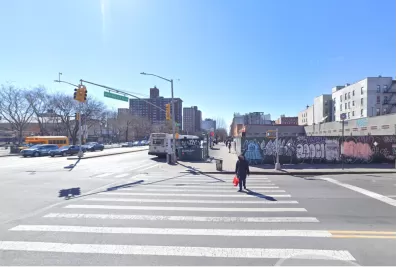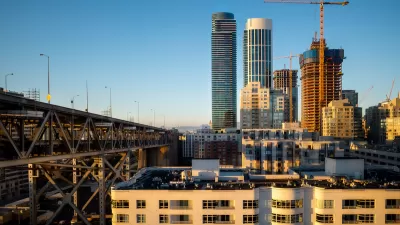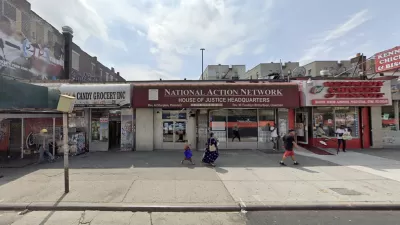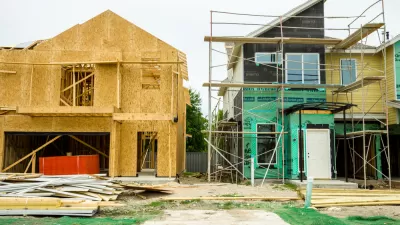After a proposal for a mixed-use development failed to gain support from a local city councilmember, the developer turned the site into a truck storage depot, prompting concerns over air quality and health impacts.

After a local councilwoman protested a proposed housing development on a Harlem lot, citing gentrification concerns, the developer chose to use the site for a truck depot instead. “Their fight reflects the challenge of building housing in New York,” write Emma G. Fitzsimmons and Mihir Zaveri in the New York Times.
The proposal, which was supported by Mayor Eric Adams, included over 900 housing units, with 10 percent set aside for households making less than $40,020 per year. Councilwoman Kristin Richardson Jordan “said she would have agreed to the project had Mr. Teitelbaum agreed to include more homes that were affordable to people with lower incomes — making a fifth of the apartments available to families of four earning $40,020 per year, for example, and reserving half of the apartments for families of four earning up to about $80,040.” Jordan called her proposal “an extreme compromise” that would still result in massive profits for the developer.
The decision to replace the proposed apartment tower with truck parking raises the stakes of New York’s already tense debate over housing, with neighbors accusing developer Bruce Teitelbaum of intentionally causing harm with the polluting, noisy facility. Teitelbaum says he is considering other options for the lot that would not require city approval, like a smaller apartment building or a self storage facility.
FULL STORY: Why Harlem Is Getting a Truck Depot Instead of New Housing

Planetizen Federal Action Tracker
A weekly monitor of how Trump’s orders and actions are impacting planners and planning in America.

Restaurant Patios Were a Pandemic Win — Why Were They so Hard to Keep?
Social distancing requirements and changes in travel patterns prompted cities to pilot new uses for street and sidewalk space. Then it got complicated.

Map: Where Senate Republicans Want to Sell Your Public Lands
For public land advocates, the Senate Republicans’ proposal to sell millions of acres of public land in the West is “the biggest fight of their careers.”

Maui's Vacation Rental Debate Turns Ugly
Verbal attacks, misinformation campaigns and fistfights plague a high-stakes debate to convert thousands of vacation rentals into long-term housing.

San Francisco Suspends Traffic Calming Amidst Record Deaths
Citing “a challenging fiscal landscape,” the city will cease the program on the heels of 42 traffic deaths, including 24 pedestrians.

California Homeless Arrests, Citations Spike After Ruling
An investigation reveals that anti-homeless actions increased up to 500% after Grants Pass v. Johnson — even in cities claiming no policy change.
Urban Design for Planners 1: Software Tools
This six-course series explores essential urban design concepts using open source software and equips planners with the tools they need to participate fully in the urban design process.
Planning for Universal Design
Learn the tools for implementing Universal Design in planning regulations.
Heyer Gruel & Associates PA
JM Goldson LLC
Custer County Colorado
City of Camden Redevelopment Agency
City of Astoria
Transportation Research & Education Center (TREC) at Portland State University
Camden Redevelopment Agency
City of Claremont
Municipality of Princeton (NJ)





























